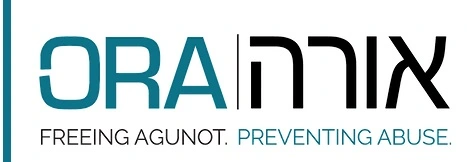Latest at the RCA
NEW RCA Hamadrikh Lifecycle Guide Click Here.
![we-stand-with-israel-5503[1]](https://rabbis.org/wp-content/uploads/2024/07/we-stand-with-israel-55031.jpg)
The RCA stands with Israel
IDF Wounded List as of June 21st, Click Here
The NEW RCA Siddur – Siddur Avodat Halev, is a full Siddur for Weekday, Shabbat, Festivals and Holidays read more
News and Noteworthy at the RCA
Policies and Positions of the RCA
Community Resources
Organization for the Resolution of Agunot (ORA)
ORA seeks to eliminate abuse from the Jewish divorce process. ORA works within the parameters of Jewish law and civil law to advocate for the timely and unconditional issuance of a get. ORA believes that the protracted refusal to issue or receive a get is a form of domestic abuse which must never be tolerated. ORA seeks to foster a Jewish community in which a get is never used as a weapon. ORA pursues its mission through agunah case advocacy, early intervention programs, and educational initiatives for agunah prevention. Visit www.getora.org for more information
Ematai: Gain Clarity in Life's Healthcare Choices
Ematai: Navigate Healthcare Choices with Jewish Wisdom Ematai was originally founded as HODS in 2001 to educate about organ donation in Jewish communities. In 2023, they relaunched as Ematai with a rededicated mission:
To enable Jewish families to navigate an increasingly complex healthcare journey, particularly in the dilemmas of aging and end-of-life treatment.
Our name, Ematai, “If not now, when?”, is a call to action. Ematai seeks to upstream the necessary conversations that will facilitate meaningful choices later. Ematai helps individuals and their families anticipate the questions they’ll need to answer as they continue on their healthcare journey.
Ematai also explores the big moral questions that society needs to face as technological revolutions change the human experience. We are here to demonstrate how Jewish wisdom responds to the ethical dilemmas often found in healthcare innovation. To this highly relevant moral frontier, Ematai brings together rabbis, healthcare professionals, ethicists, and communal leaders to represent Judaism with a wise and nuanced voice.
The Beth Din of America
Click here The Beth Din of America is a rabbinical court that arbitrates and mediates commercial, communal and family disputes, arranges Jewish divorces, resolves contested Get and agunah cases, and issues halachic personal status determinations (including certifications of Jewish status).
Since its inception in 1960, the Beth Din of America has been recognized as one of the nation’s pre-eminent rabbinic courts.
Firmly anchored in the principles of halacha (Jewish law), the Beth Din has earned a reputation for conducting its affairs with confidentiality, competence, fairness, and integrity.
The Beth Din is affiliated with the Rabbinical Council of America and the Orthodox Union. It is funded by a combination of fees for services, private donations, and support by communal endowments and institutions. Whenever the Beth Din acts as a neutral in a dispute among parties, the Beth Din discloses to the parties all known potential conflicts of interest.
The PreNup
Click here Traditionally, rabbinical courts (batei din) have been charged with the responsibility of overseeing the process of Jewish divorce, and ensuring that a Get is not improperly withheld. However, in modern society batei din frequently lack the authority to do so. The Prenup is a document entered into by a man and woman prior to their marriage. It provides that in the unfortunate event of divorce, the beit din will have the proper authority to ensure that the Get is not used as a bargaining chip.
The Prenup essentially contains two provisions:
1. Each spouse agrees to appear before a panel of Jewish law judges (dayanim) arranged by the Beth Din of America, if the other spouse demands it, and to abide by the decision of the Beth Din with respect to the Get.
2. If the couple separates, the Jewish law obligation of the husband to support his wife is formalized, so that he is obligated to pay $150 per day (indexed to inflation), from the date he receives notice from her of her intention to collect that sum, until the date a Jewish divorce is obtained. This support obligation ends if the wife fails to appear at the Beth Din of America or to abide by a decision of the Beth Din of America.
Each of these provisions is important to ensure that a Get is given by the husband to his wife in a timely manner following the functional end of a marriage. The first obligation grants authority to the rabbinical court to oversee the Get process. The second obligation provides an incentive for the husband to abide by decisions of the rabbinical court, and give a Get to his wife once the marriage is over and there is no hope of reconciliation.









